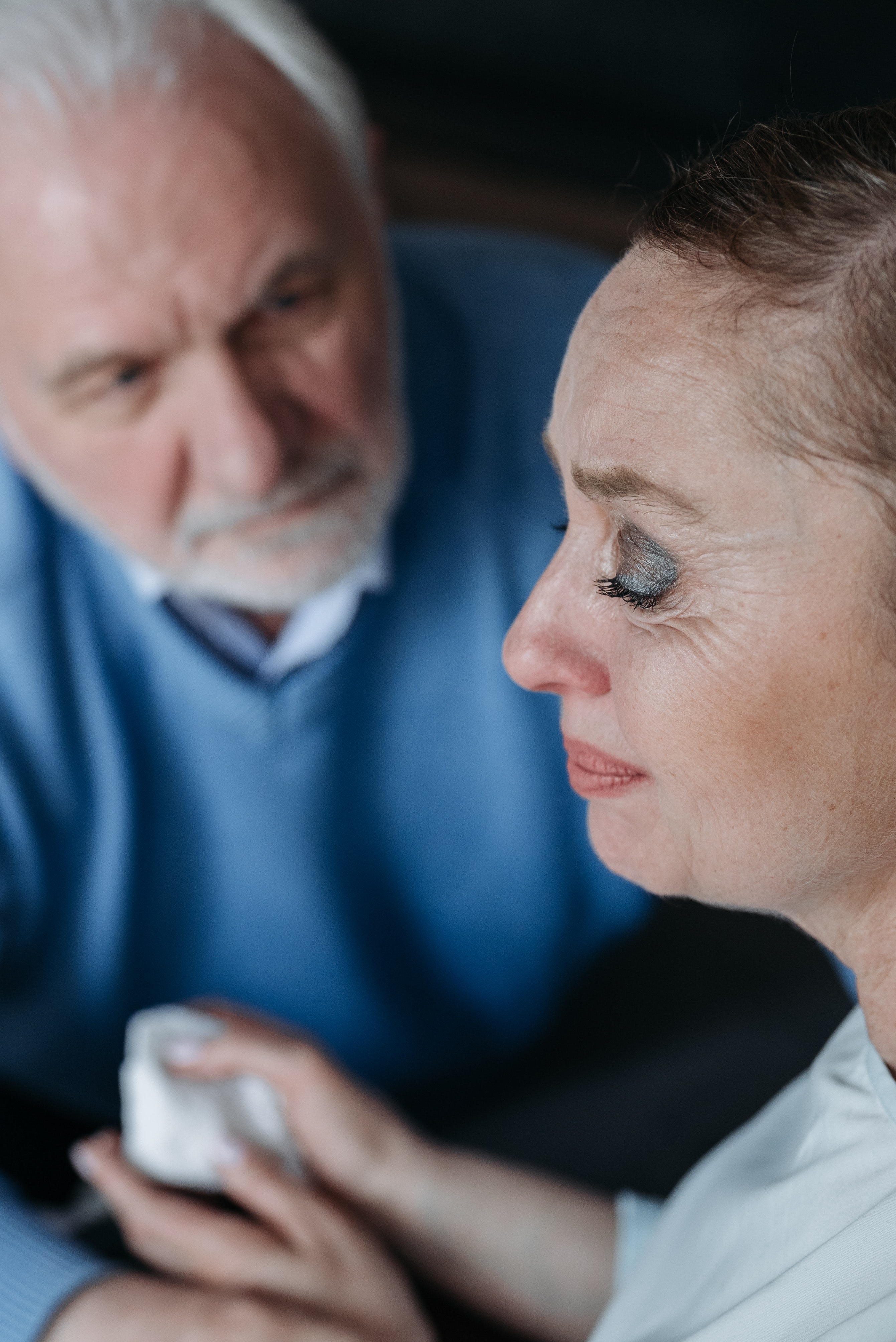Personality Changes with Stroke
 Photo by Pavel Danilyuk on Pexels.com
Photo by Pavel Danilyuk on Pexels.comPerhaps one of the hardest consequences of stroke that a family deals with is personality changes in the stroke patient. It is not uncommon for the stroke victim to become apathetic, depressed, or have frequent mood swings. Depression is by far the most common emotional change, but there are others that are equally as difficult. Below is a list of some emotional changes that may occur with stroke:
Emotional Lability - This is characterized by mood swings and emotional responses for no apparent reason. The person may cry uncontrollably without provocation or laugh at inappropriate times. Emotional lability can be debilitating for patients because it interferes with their ability to interact with others socially. Emotional lability is not the same as depression. A stroke victim can be labile without being depressed or he or she may be afflicted with both conditions.
Depression - Due to brain injury and decline in function, it is not uncommon for the stroke patient to become depressed. If the patient has aphasia or is prone to lability, it may be difficult to determine if depression is present. Grieving due to the stroke or short term reactive depression is normal, but deeper depression may include persistence of these symptoms:
 Photo by Kindel Media
Photo by Kindel MediaFeelings of despair and hopelessness
Poor appetite or increased appetite
Frequent crying
Excessive sleeping or not sleeping enough
Apathy toward life
Increased agitation or restlessness
Expression of suicidal thoughts or thoughts about dying
In order to determine if your loved one is experiencing depression after stroke, have an evaluation performed by a physician. Neuropsychiatrists can be helpful in dealing with post stroke depression. Tips to help patients with depression include involving them in activities, exposing them to sunlight or the outdoors, expressing a positive attitude when interacting with them, and helping them find a support group.

Agitation - The stroke patient may appear angry or have episodes of lashing out verbally and/or physically. Fear may be present as well. The agitated patient may unintentionally say hurtful things. Agitation may be brought on by overstimulation from such things as noise, bright lights, being attached to multiple medical devices (IVs, catheters, feeding tube, etc.), too many visitors, and others trying to engage the patient in conversation or asking the patient questions.
Caregivers can help calm the agitated person by talking calmly, not asking too many questions, avoiding activities that are known to agitate the patient, knowing the signs of beginning agitation, removing items that overstimulate the patient, limiting visitors when necessary, and making sure the patient is getting enough rest.
Anxiety - Symptoms may include persistent irritability, restlessness, poor concentration, poor sleeping habits, muscle tension, decreased energy, and excessive worrying. Some stroke patients may be overly fearful that they are going to experience another stroke.
Dealing with Personality Changes
It is important to consult a neuropsychiatrist or neuropsychologist if the stroke victim is debilitated by any of the above mentioned personality changes. These medical specialists are specifically trained to work with neurologically impaired patients.
To find a neuropsychologist in the US, visit https://theaacn.org/directory/#gsc.tab=0
To find a neuropsychiatrist in the US, visit https://www.healthsoul.com/best-doctor-ratings/neuropsychiatrist/usa
Get Our Stroke Rehab Guide

Our comprehensive stroke rehab guide in pdf format is designed for both patients and caregivers who want clear, practical ways to support recovery, improve daily function, and regain independence at home. It includes
- Rehab exercises with pictures for safe home practice
- Physical, occupational, and speech therapy guidance
- Tips for daily activities and adaptive equipment
- Answers to common questions from patient and caregivers
- Information on stroke causes, treatment, and prevention
A single therapy visit can run $150 or more. The Stroke Rehab Guide is only $14.99, and includes a pdf guide you can continue to refer to in the future with exercises and information on stroke recovery. In addition, any time an update or new version of the guide is written, you will get the updated version for free.

About the Author
Karen Murray, OTR, CHT, CSRS, is a licensed occupational therapist, Certified Stroke Rehabilitation Specialist, Certified Hand Therapist, and Certified Personal Trainer with over 29 years of experience working with stroke survivors in hospital, outpatient, and home settings. She founded Stroke-Rehab.com to help patients and caregivers better understand stroke recovery, find evidence-based resources, and regain independence at home.
Medical Disclaimer: All information on this website is for informational purposes only. This website does not provide medical advice or treatment. Always seek the advice of your physician or other healthcare provider before undertaking a new healthcare or exercise regimen. Never disregard professional medical advice or delay seeking medical treatment because of something you have read on this website. See the disclaimer page for full information.














